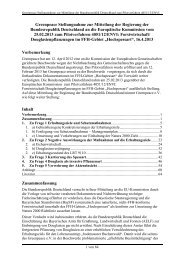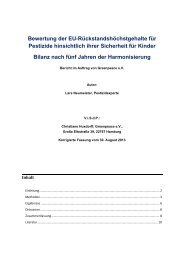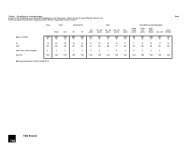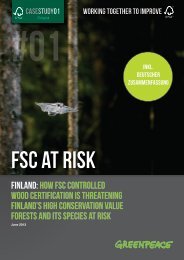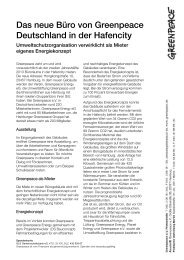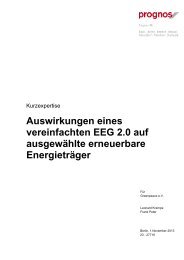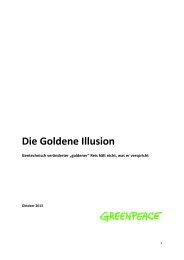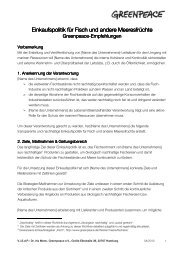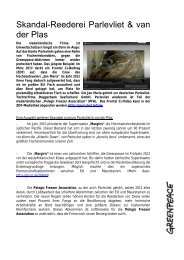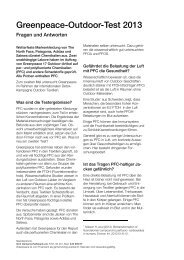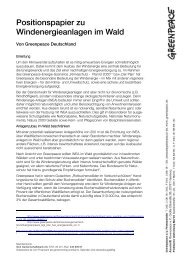Untitled - Greenpeace
Untitled - Greenpeace
Untitled - Greenpeace
You also want an ePaper? Increase the reach of your titles
YUMPU automatically turns print PDFs into web optimized ePapers that Google loves.
CARVING UP THE CONGO<br />
33<br />
INDUSTRIAL LOGGING IS<br />
SUSTAINING CORRUPTION<br />
IN THE DRC<br />
In an environment of endemic corruption,<br />
logging companies inevitably operate beyond<br />
the rule of law. In the DRC, the logging<br />
industry continues to feed the networks of<br />
corruption that are obstacles to genuine<br />
development. Through support for an<br />
extractive industry-based model of<br />
development, donor countries and agencies<br />
such as the World Bank are effectively<br />
undermining their own rhetoric on establishing<br />
good governance and alleviating poverty.<br />
In 2003 the Extractive Industries Review (EIR),<br />
commissioned by the World Bank,<br />
acknowledged the significant economic, social<br />
and environmental risks of extractive<br />
industries. It recommended that the World<br />
Bank shape and sequence its interventions<br />
according to the quality of governance in the<br />
host country. Governance criteria can include,<br />
amongst other things: the quality of the rule of<br />
law; the risk of conflict; human rights<br />
protection; recognition of and willingness to<br />
protect the rights of indigenous peoples;<br />
capacity to mitigate and manage the impacts<br />
of extractive industries; and, government<br />
capacity and willingness to publish and manage<br />
revenues transparently and ensure effective<br />
revenue sharing. 145<br />
‘It is not accidental that no<br />
efforts have been made to<br />
construct the fundamentals<br />
of a regime to combat<br />
corruption and illicit finance<br />
schemes in the DRC. The<br />
DRC’s history is one of rulers<br />
aspiring to hold and retain a<br />
monopoly of power. Salaries<br />
of DRC officials have, in<br />
practice, been regularly and<br />
heavily supplemented by<br />
revenues from bribery.’ 149<br />
Report for USAID, 2003<br />
Clearly the DRC has governance problems: the<br />
Government’s institutional capacity and its<br />
ability to manage revenues, including those<br />
generated by industrial logging, remain weak.<br />
Control over natural resources has been at the<br />
heart of nearly a decade of war in the DRC and<br />
serious questions have been raised about the<br />
role of foreign companies in the extraction and<br />
export of the country’s resources. 146 Instability<br />
plagued the transitional government and<br />
violent conflict continues in parts of the<br />
country. 147 Corruption as a strategy for<br />
survival among low- and middle-ranking law<br />
enforcement civil servants (eg the acceptance<br />
of bribes and lack of enforcement of<br />
regulations) fuels and is fuelled by the highlevel<br />
corruption practised by the country’s<br />
political elite whose power is based on profit<br />
from natural resources such as forests. 148<br />
©<strong>Greenpeace</strong>/Reynaers



